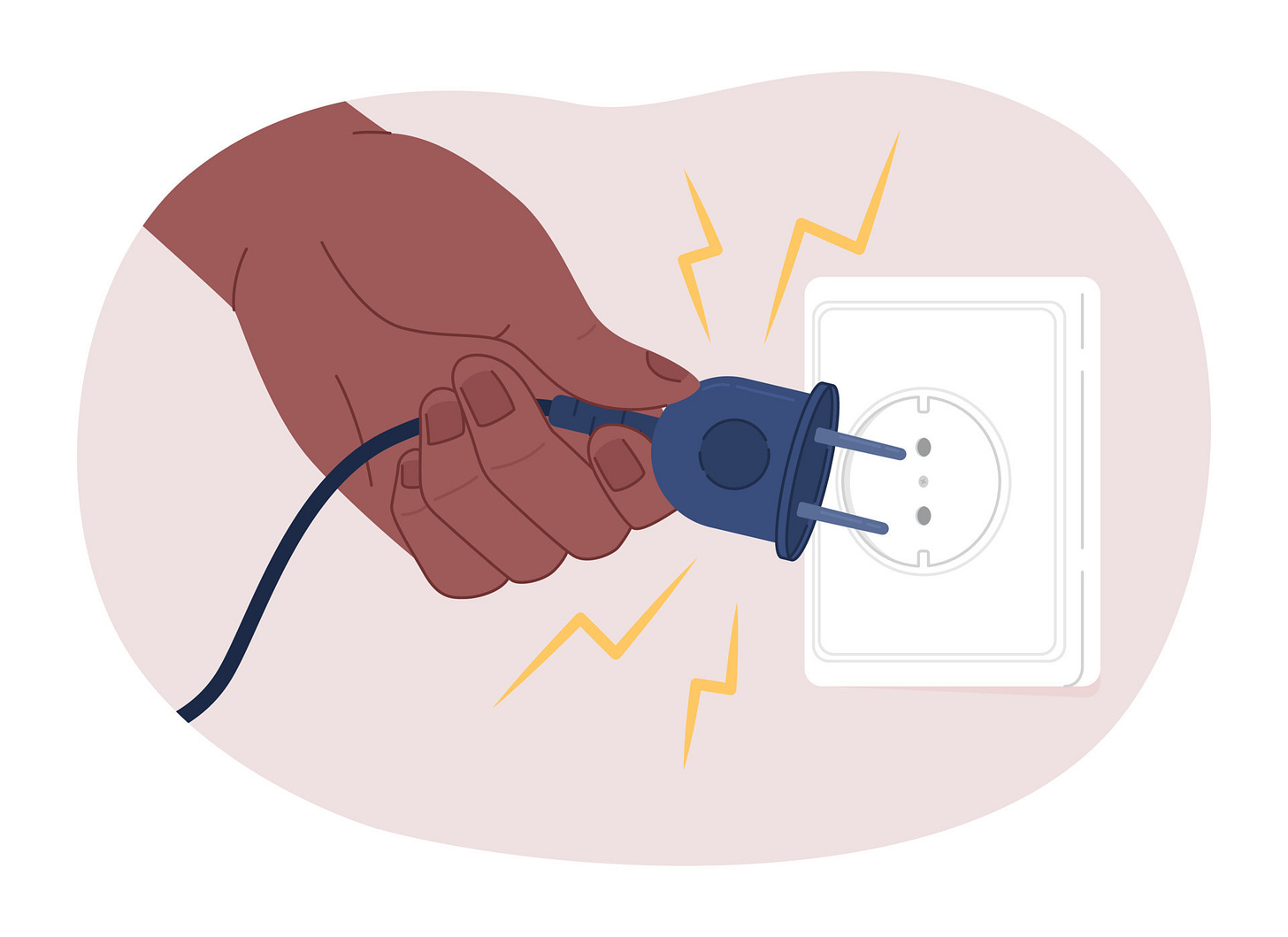After last week’s newsletter, I spent some time thinking about digital minimalism, searching Google to see what more I could find out about it. The irony is not lost on me.
Digital minimalism encompasses a more mindful and intentional approach towards technology. It’s about cutting distractions and optimising usage to prevent overwhelm. Well wouldn’t that be fucking rosy? When your engagement, attention and screen time is the desired commodity as a consumer of most technologies, it’s like swimming against the tide of a fast flowing river attempting to not get distracted.
Technology has firmly integrated itself into our daily lives, particularly in the form of screens. Phones, laptops, computers, TVs: it takes more effort to avoid them. Digital minimalism I suppose at least accepts technology as unavoidable. The average total screen time globally in 2024 for adults is 6 hours and 35 minutes. Screen time here being total time spent in front of any screen, not just phones. In the US, watching TV is ranked highest for the activity that people are spending most of their screen time on, followed by video gaming and then social media. I remember being told when I was young that my eyes would go square if I sat too close staring at a screen for too long, but we’ve truly got so much else to worry about.
Video gaming addiction or gaming disorder is considered by healthcare professionals to be a problematic psychological addiction. An estimated 4% of gamers are considered to be addicted which is around 60 million people. However, the same cannot be said for TV or social media. Neither have any medical recognition for comparable addictive disorders. There’s a complete lack of research into TV addiction. Although, many do consider it a possible compulsive behavioural issue. It’s also easy to find conversations and forums online between people who believe they may suffer from it. Perhaps it’s because extensive TV watching presents differently to gaming disorder, where the dopamine hit and cycles of ‘winning’ are pursued incessantly, much like gambling addiction. It makes me wonder what the power of gamification, the process of adding in game-like features to otherwise game-less technology apps and websites to ‘enhance’ user engagement, may have as it becomes an increasingly popular tool.
The history of video gaming is decades older than social media. Given that gaming disorder wasn’t recognised until around 2019, and so much is still unknown, we could still be waiting a good few years for any type of social media equivalent. This is despite the fact it’s commonly thought to have similar ‘dopamine’ effects through the validation of likes, comments and through looking at snapshots of other people’s happiness. Perhaps collectively across TV, video gaming and social media, it’s the pursuit of an alternative reality or the escapism that these types of technology offer which add to their addictiveness.
As of 2024, people spend 1 hour 52 minutes daily on social media in the UK. Unlike TV, there have been increasingly more studies and research exploring the addictiveness of social media over the last few years. 20 years ago social media almost entirely ceased to exist so the exponential growth in social media consumption has no doubt made it difficult for thorough investigation and research to catch up. All the while, our data continues to be harvested and weaponised against us to ensure we’ll never leave.
So, yeah the concept of digital minimalism is great in theory and probably would make us all happier in the long run. But in practice, it doesn’t seem quite that simple. Some of us do try. We go on digital “detoxes” logging out of our beloved apps, turning notifications off or maybe even leaving the phone out of reach entirely. A detox by definition is the process of ridding toxins from the body. Our casual self infliction of harmful digital substances looks set to continue.
When I’m on holiday, my dependency on my phone shifts. I think we all try to indulge in the idea of practising digital minimalism and switching off from the “toxins”. My contract has EU roaming included, so I can use the internet the same as in the UK. I cannot imagine travelling without the likes of Citymapper and Google search results to find transport links and map out travel routes. A far cry from my imaginings of spending a day without my phone last week. Seeing my exact location on a digital map quells my anxiety if I ever start to feel lost, particularly if I’m travelling alone.
When it comes to social media, perhaps it’s subconsciously the pendulum swing of power that dilutes the feeling of dependency. On holiday, or away somewhere exciting we have control. Aha! Now we’re the ones posting pictures and videos to the envy of others. It’s no longer me sitting at home comparing my life and wishing to find myself in dreamier surroundings. We’re already there! Of course, it’s not that simple. Being on holiday doesn’t guarantee happiness and it doesn’t make you immune to feelings of jealousy in other ways. If it’s no longer location, then social media will try to worm its way into another perceived inadequacy. But, I think I’m less likely to use social media as a stick to beat myself with on holiday. There’s a certain nonchalance that settles over me when it comes to how I feel about my own life that I try to savour. I’m not sure if it’s because of the distance, or if it’s the ‘pursuit of an alternative reality or escapism’ offline. I am pulled from the weeds and allowed to stick my head above the parapet to believe there is more to life.







